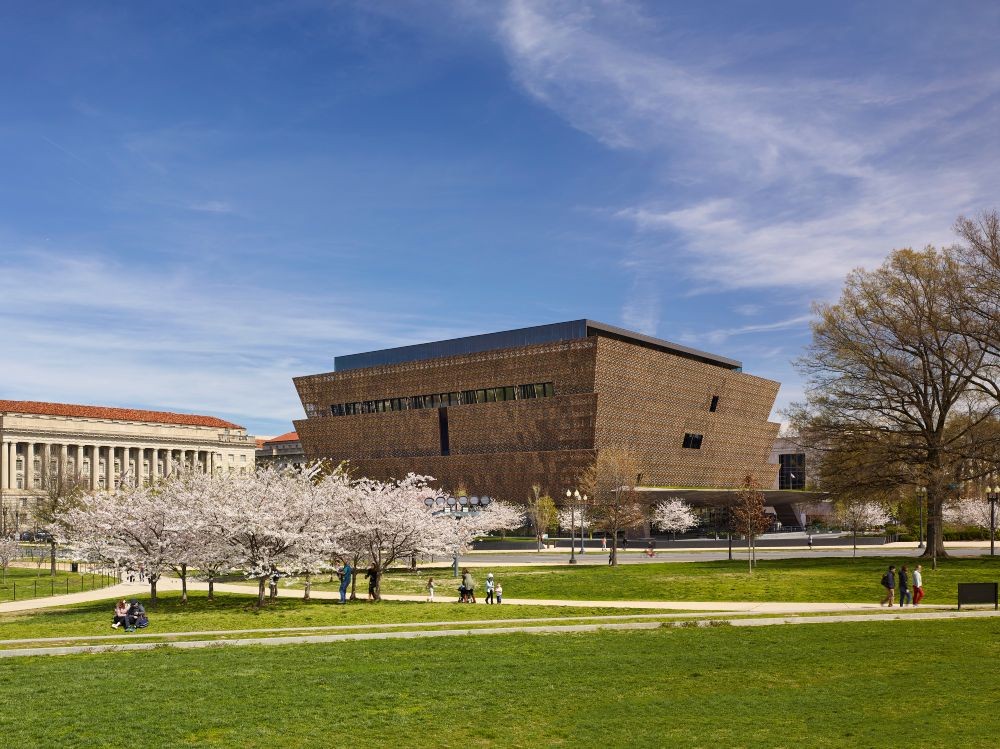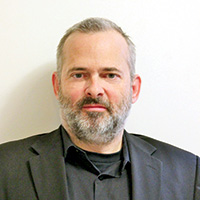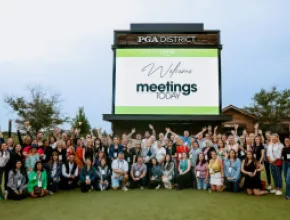Formed in Los Angeles in 1950, the secretive Mattachine Society, named after a medieval French society of masked dancers and actors, was a pioneering gay activist group that set the stage for the gay rights movement.
Established in 1961, Mattachine’s D.C. chapter fought for security clearances and against job discrimination, marking a key milestone in the local gay community’s decades-long struggle against oppression and persecution.
Another pivotal turn came in 1975 when Deacon Maccubbin organized Gay Pride Day in front of Lambda Rising, his gay bookstore near Dupont Circle.
The block party attracted 2,000 attendees at a time when Maccubbin’s pioneering business attracted bomb threats and smashed windows. Following an earlier Pride event in 1972, the event, later renamed Capital Pride, evolved into one of the nation’s largest annual Pride celebrations.
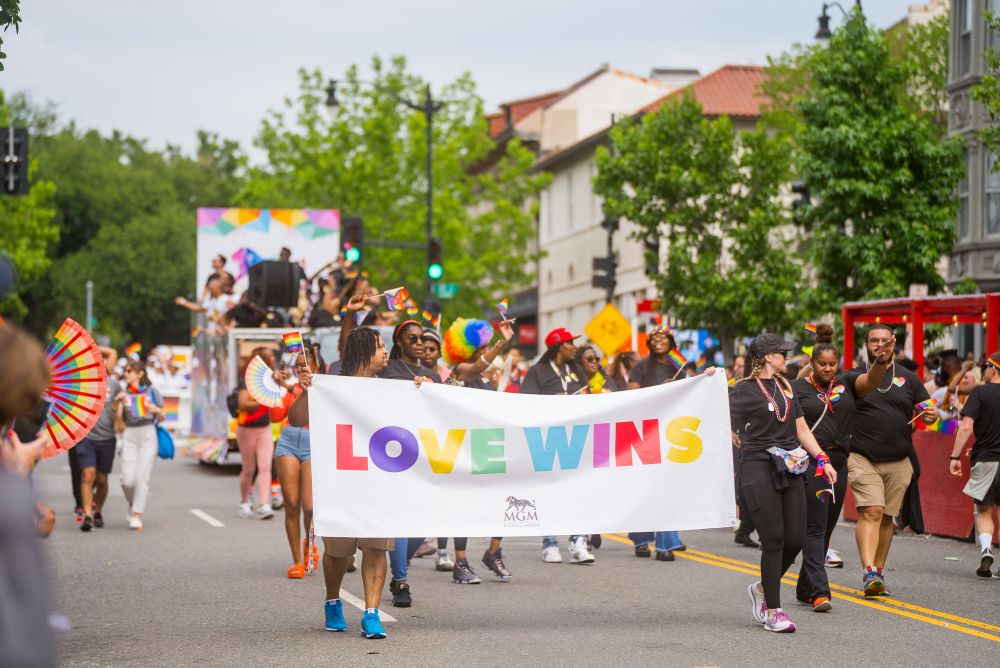
Organizer Capital Pride Alliance, which holds area Pride programs year-round, celebrates the event’s 50th anniversary this year by welcoming WorldPride to D.C. for the first time.
Themed “The Fabric of Freedom” for the “shared humanity and unshakeable unity” that keeps the LGBTQ+ community strong, the celebration joins the historical quilt of civil and human rights events in the D.C. area. For groups, speaking up, being heard and creating change constitute the very fiber of the region.
Rallying for the Cause
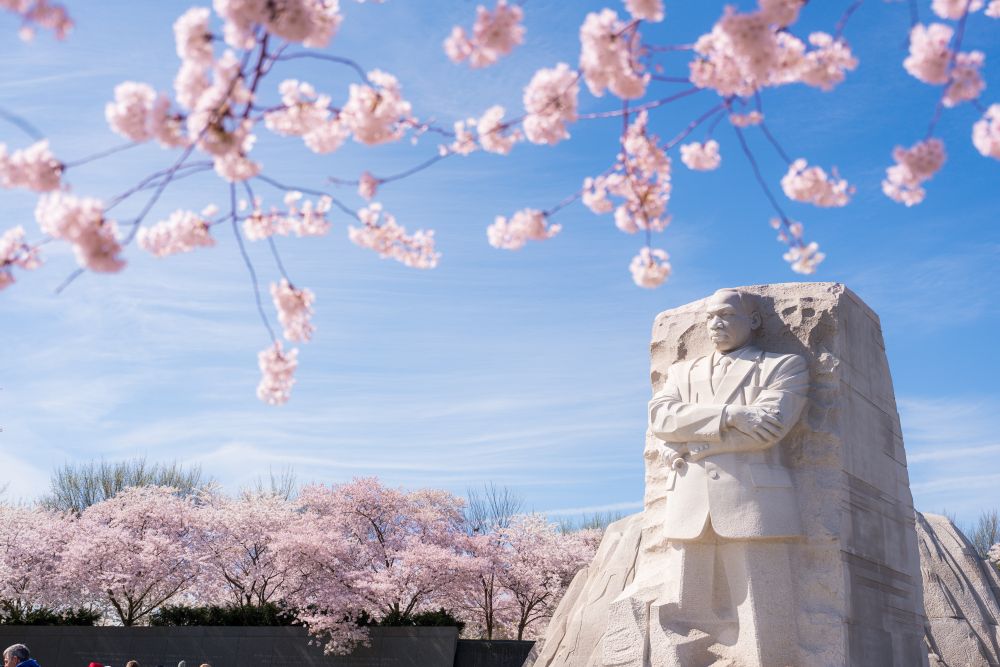
According to Smithsonian Magazine, the first march on Washington took place in May 1894 when a “ragtag band” of 10,000 petitioners called “Coxey’s Army” converged on the U.S. Capitol, some commandeering trains to get there, to protest income inequality. Since then, millions of people have rallied in D.C. for anti-war, civil rights and other causes.
Held annually since 1974 on the anniversary of Roe v. Wade, pro-life demonstration The March for Life is the sole recurring large-scale event. Landmark LGBTQ+ rallies include the first National March On Washington for Lesbian and Gay Rights in 1979 and the National Pride March in 2017. Dr. Martin Luther King Jr.’s “I Have a Dream” speech at the 1963 March on Washington was a watershed moment in the fight for freedom.
The images, voices and artifacts of protest and triumph indelibly imprint D.C.’s cultural landscape. Dr. King is among the champions remembered and celebrated at the event-capable National Museum of African American History and Culture along with legendary musicians and athletes and military heroes.
Seventeen area sites honor U.S. veterans and service members, including Arlington National Cemetery and the World War II, Vietnam Veterans and Korean War Veterans memorials.
Knowledge is power. The Library of Congress is the nation's oldest federal cultural institution and the world’s largest library, housing 178 million-plus books, films, videos, audio recordings, photographs, newspapers, maps and manuscripts in its collections. Self-guided group tours are welcome.
D.C. offers enduring symbols of peace and renewal. In 1972, China gifted giant pandas Ling-Ling and Hsing-Hsing to the American people as a goodwill gesture. This January, event-friendly Smithsonian’s National Zoo and Conservation Biology Institute, hosting “the wildest events in town,” welcomed Bao Li and Qing Bao as the program’s latest ambassadors.
In 1912, cherry trees, a friendship gift from the people of Japan, were planted in D.C.’s Tidal Basin, celebrated ever since in the annual National Cherry Blossom Festival. As Destination DC President and CEO Elliott L. Ferguson II recently stated, “when the cherry blossoms are blooming, it feels as though the entire city comes alive.”
Expect that same vibrancy from WorldPride 2025.
[Related: Washington, D.C., Offers a Mosaic of Meetings Options for Planners]
D.C. Is Center Stage for Freedom and Unity
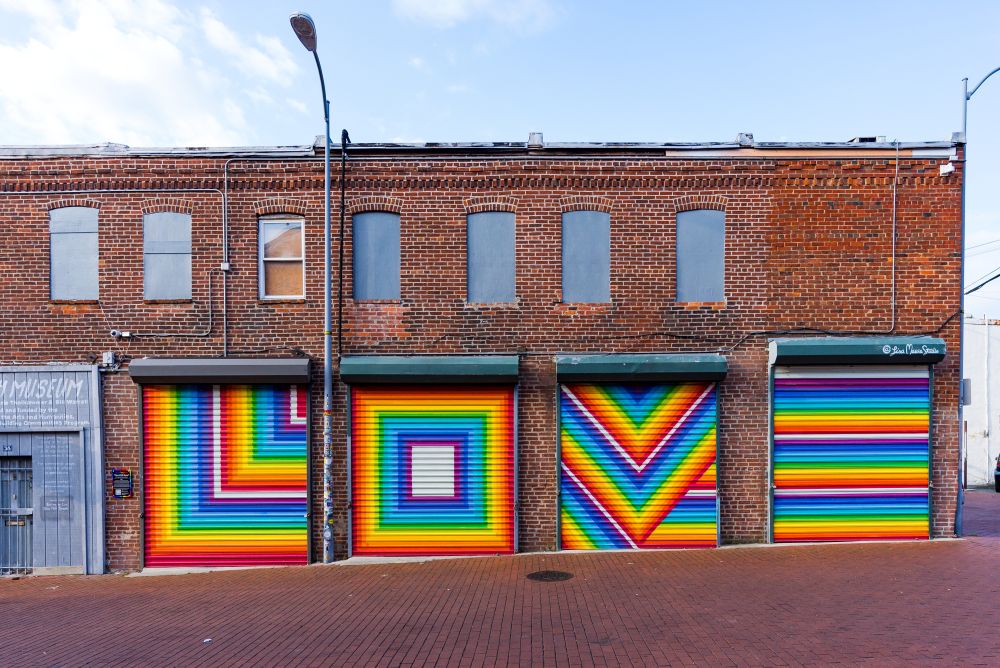
“Washington, D.C., has long been a foundation of democracy and a catalyst for progress, where history and innovation converge to shape the American experience,” Ferguson shared. “As the home to pivotal movements for equality and a leader in fostering diversity, equity and inclusion, D.C. welcomes connection, dialogue and celebration.”
Thirty-six national and international LGBTQ+ organizations are headquartered in D.C., where 14.3% of residents, the highest in the nation, identify as LGBTQ+.
“Our city’s commitment to inclusivity is not just a statement—it’s a lived experience,” Ferguson continued. “WorldPride DC 2025 will showcase this spirit on a global scale.”
Inaugurated in Rome in 2000, WorldPride is held biannually in conjunction with international Pride celebrations. Scheduled for May 17-June 8, the D.C. event is expected to attract 2 million overnight visitors and 1 million regional participants. Visitor spending could exceed $787 million.
Free and ticketed events include DC Black Pride, held annually since 1991; the Capital Cup Sports Festival; a welcome concert at Nationals Park featuring Shakira; and WorldPride Film Festival. Other marquee events include the Human Rights Conference, hosted by the JW Marriott and National Theatre, and Capital Pride Honors at the National Building Museum. The signature WorldPride Parade, emblematic of the Pride movement, and the closing ceremony and concert provide the joyous finale.
“We are also looking ahead to America's 250th anniversary, when D.C. will again take center stage in honoring our shared values of freedom and unity,” Ferguson said. “There is no better place for groups to engage with this rich legacy—whether during WorldPride or throughout the year—than in the heart of the nation’s capital.”
[Related: Washington, D.C.’s Food Scene Delivers International Inspiration]
Strongholds of Liberty, Unity and Progress
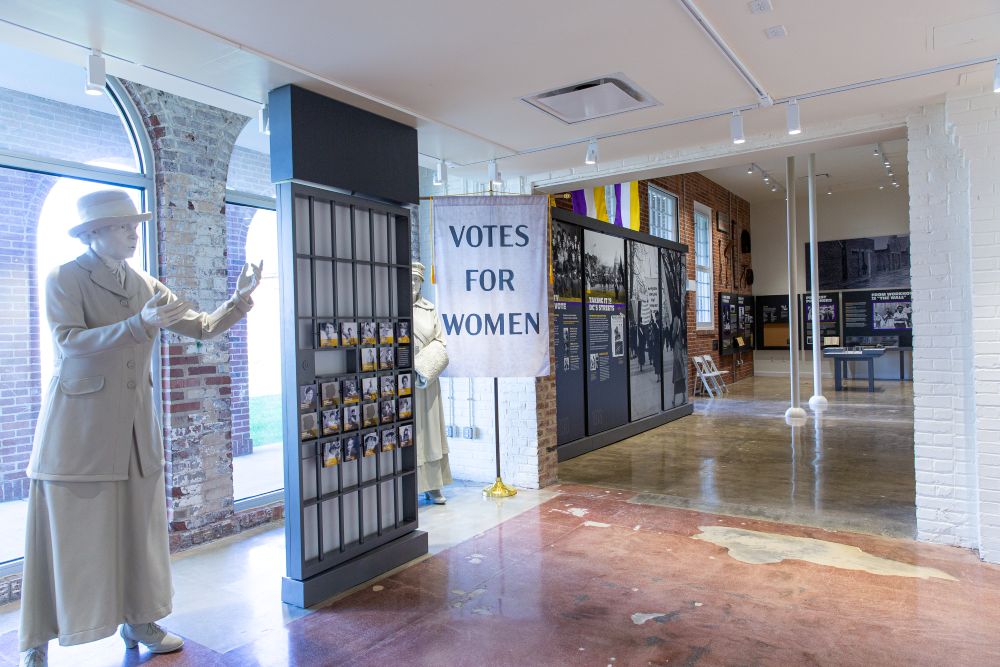
The fight for equal rights, inclusion and independence is woven into the fabric of D.C.’s Virginian neighbors across the Potomac River.
For nearly two centuries, women in historic Fairfax County (1742) have positively impacted local, regional and national culture and society.
In 1917, four years after suffragists first marched on Washington, 120-plus women were jailed at the Lorton Workhouse after picketing the White House for the right to vote. Now the event-capable Workhouse Arts Center, the former prison incorporates a museum and Lucy Burns Gallery, after the leading suffragist and women's rights advocate.
In 1920, their efforts, and those of countless other women, produced the 19th Amendment to the U.S. Constitution, guaranteeing women the right to vote. Lorton is the home of the Turning Point Suffragist Memorial, the only national site commemorating the suffrage movement, and the Elizabeth Hartwell Mason Neck National Wildlife Refuge.
In 1969, following the late Ms. Hartwell’s hard-won fight against developers, the U.S. Fish and Wildlife Service established this 2,276-acre sanctuary as America’s first refuge specifically for the protection of the bald eagle, our national symbol. Nearby, Gunston Hall is the event-capable former home of George Mason, the Virginian who drafted the documents that led to the Bill of Rights and Declaration of Independence.
In 1966, Catherine Filene Shouse donated her Wolf Trap farm to the National Park Service. To this day, event-capable Wolf Trap National Park for the Performing Arts is the only performing arts venue in a U.S. national park.
George Washington's Mount Vernon once faced permanent ruin. Cue Ann Pamela Cunningham.
Founding the Mount Vernon Ladies' Association (MVLA) in 1853, the trailblazing South Carolinian, through nationwide fundraising efforts, acquired and saved Mount Vernon (currently undergoing a major preservation project) for future generations. In 2013, MLVA created the preeminent George Washington Leadership Institute.
The National Museum of the United States Army at Fort Belvoir presents the story of 30 million-plus men and women who have fought for freedom since the Army was founded in June 1775.
“We promise visitors a deep connection to America, where ties to liberty, unity and progress run strong,” said Visit Fairfax President & CEO Barry Biggar. “As we look ahead to WorldPride and America’s 250th Anniversary in 2026, we invite groups and planners to join us in a place where history is not only remembered but actively shaped year-round.”
County-wide WorldPride activations include the Reston Pride Festival.
Attendees also have a welcoming base in historic Alexandria. Earning a perfect score from the Human Rights Coalition on LGBTQ+ equality for the past five years, this charming waterfront hub of association headquarters, civic organizations and innovation played a pivotal role in American independence.
In July 1774, George Washington and other officials met in Alexandria to finalize the Fairfax County Resolves. Authored by George Mason, the document, rejecting Britain’s claim of supreme authority over the American colonies, led to the Declaration of Independence. Last summer, Alexandria commemorated the Resolves’ 250th anniversary with an official marker.
Opened in 1926, Hotel George Mason was Alexandria’s overnight and social event headquarters for decades. Reborn in June 2024 as the 134-room Hotel Heron, this Colonial Revival gem features versatile meeting space and the open-air Good Fortune rooftop bar. Among several local properties and venues supporting WorldPride, the hotel’s “Allies of Alexandria” package includes donating one dollar from each cocktail sold to the Alexandria-based LGBT Meeting Professionals Association.
Industry veteran Todd O’Leary, who left Sonoma County Tourism to become CEO and President of Visit Alexandria last year, celebrates the city’s open arms spirit.
“This warm and welcoming community has embraced me and my husband Mark since we moved here and we can’t wait to welcome WorldPride 2025 attendees in Alexandria,” he said on the bureau’s website. “Happy Pride!”



